Communicate. Collaborate. Advance your goals.
When communication is harnessed with purpose, it has the power to drive meaningful change and create lasting impact. The Custom Leadership Program (CLP) is uniquely flexible, offering multiple pathways to tailor your education to your professional goals. You can choose from specialized concentrations, or pursue a dual concentration for a broader skillset, and explore electives that align with your personal and career interests. Students gain valuable opportunities to upskill alongside their academic coursework to further enhancing their credentials throughout the year. MSC’s diverse offerings provide the flexibility to adapt and grow in an ever-evolving communication landscape.
Find out how MS in Communication alum Chris Block learned to bring humanity back into the workplace.
Receive ongoing support with a dedicated career coach available throughout the program to provide personalized advice and strategic guidance.
Stand out in today's job market by earning a concentration along with your degree.
Choose from over 20 electives to customize your student journey and personalize your experience.
Complete your MS in Communication in under 12 months and advance your career in real-time.

Professional Development Practicum provides the opportunity for students to gain familiarity and expertise with a wide range of communication topics, practices, technologies, and trends that inform the practice of communication. Students will participate in quarterly workshops taught by subject matter experts and complete assignments that integrate gained knowledge and skills with their professional goals and career pathways.
Concentrations offer MSC students a unique opportunity to tailor their studies through selective coursework in Organizational Leadership and Strategic Communication. This focused approach enables students to deepen their expertise and stand out in today’s job market by strengthening relevant, in-demand skills.
The Organizational Leadership Concentration focuses on the core curriculum themes of collaborative leadership and managing complexity. Students who complete this specialization develop more in-depth knowledge and skills necessary to be highly effective leaders and managers within an organization.
The Strategic Communication Concentration focuses on the core curriculum themes of managing complexity and effective communication. Students who complete this specialization develop more in-depth knowledge and skills necessary to be highly interactive communicators to diverse audiences within and without an organization.
The Artificial Intelligence Concentration focuses on the core curriculum themes of technological fluency and adaptive communication. Students who complete this specialization develop more in-depth knowledge and skills necessary to apply, assess, explain, and manage AI tools, enabling them to translate complex data and emerging technologies into clear strategies for diverse organizational audiences.
Students may also complete two concentrations through the dual-concentration pathway.
The foundation of the MSC experience. These required courses provide students with essential communication theories and relevant case studies that equip you with the essential frameworks and insights every successful leader needs.
 This course provides students with the concepts, insights, and techniques that will give them a competitive edge as they discover, diagnose and design networks. The course offers a set of strategic principles for students to create, maintain and dissolve network ties. These principles vary depending on a student’s desire to explore innovations, engage in entrepreneurship, exploit existing resources, implement change, or mobilize strategic partnerships. The course will identify the optimal principles in these diverse contexts using a set of case studies, review articles and computer-based visual-analytic demonstrations. By the end of the course, students will have the conceptual tools and techniques to assess an existing network and rewire them to achieve any desired individual or organizational goal.
This course provides students with the concepts, insights, and techniques that will give them a competitive edge as they discover, diagnose and design networks. The course offers a set of strategic principles for students to create, maintain and dissolve network ties. These principles vary depending on a student’s desire to explore innovations, engage in entrepreneurship, exploit existing resources, implement change, or mobilize strategic partnerships. The course will identify the optimal principles in these diverse contexts using a set of case studies, review articles and computer-based visual-analytic demonstrations. By the end of the course, students will have the conceptual tools and techniques to assess an existing network and rewire them to achieve any desired individual or organizational goal.
 Strategic communication and marketing are critical components of organizational leadership and success. Without the engagement of external stakeholders and audiences – whether in a business, nonprofit, advocacy, or community contexts – an organization cannot achieve its core goals. Marketing is a broad business practice that encompasses four sets of considerations typically described as product, price, place, and promotion. Foundations of Strategic Communication will focus specifically on this last component of marketing and introduces students to contemporary principles and practices associated with consumer-centered strategic communication, often known as Integrated Marketing Communications (IMC).
Strategic communication and marketing are critical components of organizational leadership and success. Without the engagement of external stakeholders and audiences – whether in a business, nonprofit, advocacy, or community contexts – an organization cannot achieve its core goals. Marketing is a broad business practice that encompasses four sets of considerations typically described as product, price, place, and promotion. Foundations of Strategic Communication will focus specifically on this last component of marketing and introduces students to contemporary principles and practices associated with consumer-centered strategic communication, often known as Integrated Marketing Communications (IMC).
We will focus on providing the necessary knowledge, skills, planning in branding, audience segmentation, consumer psychology and behavior, strategic message design, and leveraging paid, owned, and earned media to meet promotional goals and objectives. These fundamentals of promotion and branding will be supplemented with specific scholarship, case studies, and speakers. By the end of the course, students will have a broad understanding of strategic communication and experience in developing the major components of an integrated marketing communications plan.
 This action-oriented course builds participants’ collaborative leadership skills. Through a series of case studies, activities, and projects, students learn how to effectively lead teams. The course explores the specific challenges associated with leading teams, some of which include building and designing teams, managing information exchange within and across teams, structuring effective group decision processes, igniting creative thinking, enabling complex problem solving, and managing team conflict.
This action-oriented course builds participants’ collaborative leadership skills. Through a series of case studies, activities, and projects, students learn how to effectively lead teams. The course explores the specific challenges associated with leading teams, some of which include building and designing teams, managing information exchange within and across teams, structuring effective group decision processes, igniting creative thinking, enabling complex problem solving, and managing team conflict.
 In this course, a variety of theories and research projects that focus on how organizational change can be managed will be presented. At its core, organizational change management is about implementation of new ideas and practices. Because organizational change might be focused on a micro and macro level, we will examine perspective that focus on how an individual’s attitudes and behavior might be altered as well as how an organizations policies and practices might be changed. Consequently, we will focus on material related to persuasion, bargaining and negotiation, and organizational campaigns. These theories will be drawn from a variety of disciplines including organizational behavior, industrial relations, political science, social psychology, and communication. Although the primary method of teaching will be lecture, students are encouraged to ask questions and offer examples.
In this course, a variety of theories and research projects that focus on how organizational change can be managed will be presented. At its core, organizational change management is about implementation of new ideas and practices. Because organizational change might be focused on a micro and macro level, we will examine perspective that focus on how an individual’s attitudes and behavior might be altered as well as how an organizations policies and practices might be changed. Consequently, we will focus on material related to persuasion, bargaining and negotiation, and organizational campaigns. These theories will be drawn from a variety of disciplines including organizational behavior, industrial relations, political science, social psychology, and communication. Although the primary method of teaching will be lecture, students are encouraged to ask questions and offer examples.
Where ideas meet action. These required hands-on courses sharpen your strategic and tactical skills, giving you the tools and confidence to communicate, collaborate, and lead from day one.

In this course, students study the use, collection, analysis, and application of information in organizational planning and decision-making. Particular attention is given to sampling methods, survey methodology, social media/website analytics, and focus groups. The goal is to produce students who make informed decisions when presented with organizational and market research.

 Designed specifically with early career professionals in mind, this course provides an opportunity to develop and refine communication and analytical skills in business-oriented research, writing and oral presentation that will be useful in the professional world. The focus of the course will be on learning communication and professional practices that are relevant to understanding and thriving in a variety of organizational contexts. Students will learn and practice the skills necessary to effectively and persuasively communicate knowledge and insights using both written and oral modalities. Students will also gain skills in working collaboratively on business-oriented projects and tasks.
Designed specifically with early career professionals in mind, this course provides an opportunity to develop and refine communication and analytical skills in business-oriented research, writing and oral presentation that will be useful in the professional world. The focus of the course will be on learning communication and professional practices that are relevant to understanding and thriving in a variety of organizational contexts. Students will learn and practice the skills necessary to effectively and persuasively communicate knowledge and insights using both written and oral modalities. Students will also gain skills in working collaboratively on business-oriented projects and tasks.
The Professional Development Practicum provides the opportunity for students to gain familiarity and expertise with a wide range of communication topics, practices, technologies, and trends that inform the practice of communication. Students will participate in quarterly workshops taught by subject matter experts and complete assignments that integrate gained knowledge and skills with their professional goals and career pathways.
The Internship Course is designed to support MSC students as they engage in an internship that aligns with their interests, coursework, and goals. Through readings, reflections, projects, and other assignments, students will assess their own skills, experiences, and interests to develop a personal plan on how to further their career development and individualized goals. Topics and concepts explored include career management and planning, performance management and principles of learning & development, personal branding, professional engagement, development of career assets, and professional engagement. Students are supervised at their internship throughout the quarter to receive support and ensure successful completion. This course occurs simultaneously while students are interning to provide a structured approach to those activities and to career development during summer quarter. This course will be delivered through Zoom with two live sessions + asynchronous support and coursework through Canvas.
Your chance to make the MSC program uniquely yours. With a wide range of options, electives let you explore your passions, deepen your expertise, and tailor your learning journey to match your career aspirations.
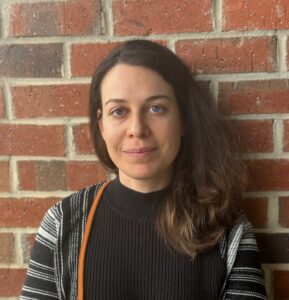
Social media is the space where organizations, publics, and algorithms interact, generating vast amounts of data every second—from online reviews of local businesses to comments on viral content and digitally mediated public debates. As artificial intelligence increasingly shapes how social media content is created, circulated, and interpreted, organizations must understand how AI influences both communication and public response.
This course offers a hands-on introduction to using AI-enabled and Python-based computational approaches to examine social media data and organizational communication. Students will learn how coding-based methods can be used to collect, analyze, and interpret social media data, enabling them to listen to publics, identify patterns in online discourse, and evaluate engagement across platforms. Through real-world cases, the course emphasizes critical and ethical engagement with AI-mediated data and insights. By the end of the course, students will use AI-supported analysis to inform and evaluate social media strategies in organizational and public communication contexts.
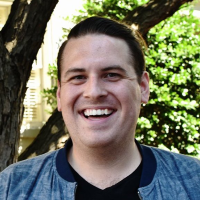 Brands are ubiquitous to modern society. The logics of branding shape how we view nearly every aspect of social life and, oftentimes, how we view ourselves. But the practices of brand management—of creating, shaping, maintaining, and contesting brand meaning—have transformed dramatically in recent decades. Technological changes have “opened up” the processes of branding and shifted the distribution of communicative power within consumer culture. At the same time, brands have become more “personal,” taking on public personalities and more explicit stances on issues of identity and justice. This course provides an overview of how these changes have altered the practices of brand management, bringing together both critical and administrative perspectives on contemporary branding. The ultimate aim is to provide students with a practical understanding of how brand management works, while also providing them with the conceptual tools to critique those practices.
Brands are ubiquitous to modern society. The logics of branding shape how we view nearly every aspect of social life and, oftentimes, how we view ourselves. But the practices of brand management—of creating, shaping, maintaining, and contesting brand meaning—have transformed dramatically in recent decades. Technological changes have “opened up” the processes of branding and shifted the distribution of communicative power within consumer culture. At the same time, brands have become more “personal,” taking on public personalities and more explicit stances on issues of identity and justice. This course provides an overview of how these changes have altered the practices of brand management, bringing together both critical and administrative perspectives on contemporary branding. The ultimate aim is to provide students with a practical understanding of how brand management works, while also providing them with the conceptual tools to critique those practices.
 This course investigates how cognitive, affective, and motivational factors shape our preferences and impact our decision-making processes. Students will gain insight into effective communication strategies for informed decision-making by analyzing real-world scenarios. Whether navigating personal choices or professional contexts, this course equips learners with the skills to critically evaluate their decisions and enhance their decision-making processes.
This course investigates how cognitive, affective, and motivational factors shape our preferences and impact our decision-making processes. Students will gain insight into effective communication strategies for informed decision-making by analyzing real-world scenarios. Whether navigating personal choices or professional contexts, this course equips learners with the skills to critically evaluate their decisions and enhance their decision-making processes.
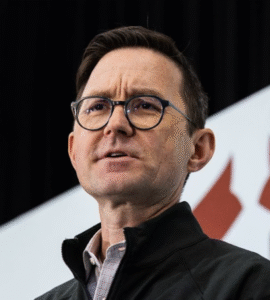
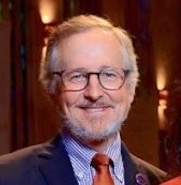 Marketing communication in the digital age plays by a new set of rules yet is founded in the timeless art of persuasion. This course will connect evidence-based audience evaluation techniques with persuasive messaging that will empower learners to manage content as a business asset. This course will explore the mechanics of content, online networking and the power of influencers, social media and email promotion, and web analytics and marketing ROI. The skills you will learn in this course will focus on ways to engage an audience, using content to drive profitable behaviors. You will learn how to win better results through content for yourself, your company, and your clients.
Marketing communication in the digital age plays by a new set of rules yet is founded in the timeless art of persuasion. This course will connect evidence-based audience evaluation techniques with persuasive messaging that will empower learners to manage content as a business asset. This course will explore the mechanics of content, online networking and the power of influencers, social media and email promotion, and web analytics and marketing ROI. The skills you will learn in this course will focus on ways to engage an audience, using content to drive profitable behaviors. You will learn how to win better results through content for yourself, your company, and your clients.
This course introduces students to the field and practice of crisis communication. The aim of the course is to provide students with knowledge and the skills to be competent crisis communicators in a variety of settings – from organizational and corporate to individual. Students will learn how professionals prepare for and respond to crises, as well as how they develop and implement crisis communication plans. The course has three progressive modules: understanding theory and practice of crisis prevention and preparation; application and practice of crisis communication skills and simulation; and evaluation and learning from crises and post-crisis lessons. The course modality will be hybrid (with in-person and online components) and is a continuing course spanning two quarters (spring and summer) with the course credit applied during summer quarter. Course instruction will consist of live online evening Zoom sessions, asynchronous lectures and activities, hybrid (in-person and zoom) Saturday skill workshops, and a required in-person participation in a day-long crisis simulation at the end of the summer quarter.
 This graduate studio course on design thinking aims to equip students with essential skills for creative problem-solving. The studio course will introduce students to the principles and mindsets of design thinking. Students will learn how to approach complex problems by emphasizing empathy, creativity, and iterative processes. Students will explore various problem spaces, identifying opportunities for improvement, understanding diverse stakeholders’ needs, motivations, and pain points. Students will reframe problems to uncover new perspectives, develop guiding hypotheses, lead brainstorming sessions, rapidly build and test prototypes, and present concepts visually and verbally. The class will include a mix of reading materials, lectures, in-class workshops, and collaborative group work.
This graduate studio course on design thinking aims to equip students with essential skills for creative problem-solving. The studio course will introduce students to the principles and mindsets of design thinking. Students will learn how to approach complex problems by emphasizing empathy, creativity, and iterative processes. Students will explore various problem spaces, identifying opportunities for improvement, understanding diverse stakeholders’ needs, motivations, and pain points. Students will reframe problems to uncover new perspectives, develop guiding hypotheses, lead brainstorming sessions, rapidly build and test prototypes, and present concepts visually and verbally. The class will include a mix of reading materials, lectures, in-class workshops, and collaborative group work.
 This course takes an integrated approach to digital storytelling connecting the disciplines of data-driven insights and strategy, omni channel media buying, influencer marketing and e-commerce to create and amplify behavior changing stories across mediums. Taught from a theory-connected-to-practicum perspective, students will learn how to develop and deploy compelling global stories supported by a permutation of readings, in-class activities, trainings, and perspectives shared by a roster of industry leaders. Coming out of the course, students will have practical knowledge and tools they can apply for a career in the digital marketing and communication industry.
This course takes an integrated approach to digital storytelling connecting the disciplines of data-driven insights and strategy, omni channel media buying, influencer marketing and e-commerce to create and amplify behavior changing stories across mediums. Taught from a theory-connected-to-practicum perspective, students will learn how to develop and deploy compelling global stories supported by a permutation of readings, in-class activities, trainings, and perspectives shared by a roster of industry leaders. Coming out of the course, students will have practical knowledge and tools they can apply for a career in the digital marketing and communication industry.
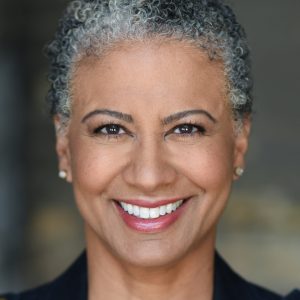 This course introduces students to communication techniques for defining, developing, and delivering professional and personal value through spoken and non-verbal communication. Through readings and practical application, students will learn how to effectively engage others to reach desired goals in 1:1 conversation, interviews, when addressing groups virtually and in-person, and through recorded and live messaging via social, traditional (broadcast) & other media. This course will explore methods for pitching ideas, fielding Q&A, extemporaneous speaking, and influencer communication to execute communication strategies through executive presence, message design, and audience analysis beyond data and demographics. This course will explore concepts of internal and external communication, persuasion, storytelling, branding, media/performance training and the nature of media itself.
This course introduces students to communication techniques for defining, developing, and delivering professional and personal value through spoken and non-verbal communication. Through readings and practical application, students will learn how to effectively engage others to reach desired goals in 1:1 conversation, interviews, when addressing groups virtually and in-person, and through recorded and live messaging via social, traditional (broadcast) & other media. This course will explore methods for pitching ideas, fielding Q&A, extemporaneous speaking, and influencer communication to execute communication strategies through executive presence, message design, and audience analysis beyond data and demographics. This course will explore concepts of internal and external communication, persuasion, storytelling, branding, media/performance training and the nature of media itself.
 Since the launch of ChatGPT in late 2022 generative AI has proliferated throughout society, capturing the imagination of the public with its potential to upend much of how people create and consume media and information. In this course we’ll demystify this new technology, understand how it works, how to control it through prompting, and how to implement it in various use cases found in media production and communication. We’ll also step back with a critical eye to ask questions of how generative AI changes the larger media system and raises ethical and governance issues around data, copyright, privacy, bias, and more.
Since the launch of ChatGPT in late 2022 generative AI has proliferated throughout society, capturing the imagination of the public with its potential to upend much of how people create and consume media and information. In this course we’ll demystify this new technology, understand how it works, how to control it through prompting, and how to implement it in various use cases found in media production and communication. We’ll also step back with a critical eye to ask questions of how generative AI changes the larger media system and raises ethical and governance issues around data, copyright, privacy, bias, and more.
 This course covers strategy and leadership within the context of the global media and communications industries to discuss several important business concepts: strategies for operation in regulated environments, crisis response for business operations, and the intersection of technology and regulation. These concepts are extended to different example global media and communication organizations and are equally usable for people in established businesses, start-ups, and entrepreneurs. This course covers “how to get things done” in the business world through examining the meta-record of what has worked and not worked in the past and what is rapidly developing daily. We will cover both business-based strategies as well as those that incorporate corporate responsibility.
This course covers strategy and leadership within the context of the global media and communications industries to discuss several important business concepts: strategies for operation in regulated environments, crisis response for business operations, and the intersection of technology and regulation. These concepts are extended to different example global media and communication organizations and are equally usable for people in established businesses, start-ups, and entrepreneurs. This course covers “how to get things done” in the business world through examining the meta-record of what has worked and not worked in the past and what is rapidly developing daily. We will cover both business-based strategies as well as those that incorporate corporate responsibility.



This team-taught course will have students learn from three leading experts about using and managing artificial intelligence (AI) in professional and organizational settings. The focus is on providing practical skills that enable students to apply AI responsibly in their organizations, with an emphasis on the importance of ethics and trust in AI use.
Read Professor Leslie DeChurch’s Biography
 Globalization, information, and technology access have transformed the face of the business world in the last decade. Although multinational organizations continue to increase their influence worldwide, these trends have also transformed and impacted businesses of all sizes, locations, and industries. The speed of change and the instant interactions between cultures have created immense business opportunities. Whole industries have been re-defined, (i.e., impact on cost structure by foreign manufacturing, speed of product development, and ability to leverage global resources for almost any business need). These opportunities also create new challenges for today’s managers. As Managers, is critical to become more effective leaders in a multicultural and global economy. This course uses an action-oriented approach to develop a good understanding of international management and their practical implications when leading and managing teams.
Globalization, information, and technology access have transformed the face of the business world in the last decade. Although multinational organizations continue to increase their influence worldwide, these trends have also transformed and impacted businesses of all sizes, locations, and industries. The speed of change and the instant interactions between cultures have created immense business opportunities. Whole industries have been re-defined, (i.e., impact on cost structure by foreign manufacturing, speed of product development, and ability to leverage global resources for almost any business need). These opportunities also create new challenges for today’s managers. As Managers, is critical to become more effective leaders in a multicultural and global economy. This course uses an action-oriented approach to develop a good understanding of international management and their practical implications when leading and managing teams.
 The course provides a general introduction to the social scientific study of persuasive message design, emphasizing message, source, receiver, and contextual factors that either enhance or attenuate the effectiveness of strategic messaging. The course covers key factors that underlie human behavior change and discusses the ways in which behavioral change can be measured, analyzed, and validated. The larger purpose of the course is to provide a toolkit for thinking about how to influence behaviors through effective messaging. Additionally, students will put knowledge into practice, by completing an original research project that tests the effectiveness of a particular persuasive message.
The course provides a general introduction to the social scientific study of persuasive message design, emphasizing message, source, receiver, and contextual factors that either enhance or attenuate the effectiveness of strategic messaging. The course covers key factors that underlie human behavior change and discusses the ways in which behavioral change can be measured, analyzed, and validated. The larger purpose of the course is to provide a toolkit for thinking about how to influence behaviors through effective messaging. Additionally, students will put knowledge into practice, by completing an original research project that tests the effectiveness of a particular persuasive message.
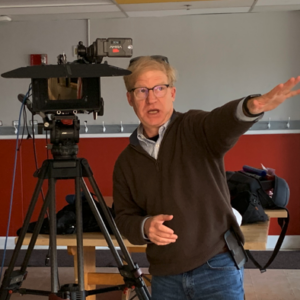 You no longer need to be a Hollywood producer/director or Madison Avenue ad executive to produce compelling video narratives. Today, most people have the means of production (a video camera on their phone and a computer) and the means of distribution (the Internet) to communicate their story to audiences around the world. This hands-on course combines messaging theory, storytelling, and production skills development in conceiving, scripting, shooting & editing, and campaign implementation. Students will conceive, write, shoot, and produce their own videos on topics and/or campaigns of their choosing. The course explores how to use research techniques to refine a message and present that message in narrative form that gets noticed; and is most accessible to their chosen target audiences. In our video storytelling age, students will hopefully leave the course with skills and an approach that will serve them long into the future, both professionally and personally.
You no longer need to be a Hollywood producer/director or Madison Avenue ad executive to produce compelling video narratives. Today, most people have the means of production (a video camera on their phone and a computer) and the means of distribution (the Internet) to communicate their story to audiences around the world. This hands-on course combines messaging theory, storytelling, and production skills development in conceiving, scripting, shooting & editing, and campaign implementation. Students will conceive, write, shoot, and produce their own videos on topics and/or campaigns of their choosing. The course explores how to use research techniques to refine a message and present that message in narrative form that gets noticed; and is most accessible to their chosen target audiences. In our video storytelling age, students will hopefully leave the course with skills and an approach that will serve them long into the future, both professionally and personally.

Power, status, and influence are topics that make many people a little uncomfortable. However, their existence permeates all aspects of organizational and social life. Power and influence are the key mechanisms by which things get done. We have a good understanding of the rules that determine who gets to positions of power and of the tactics necessary to exercise power with integrity. This course is designed to familiarize students with concepts useful for understanding power and influence and to provide them with tools to analyze power dynamics in organizations. More importantly, this course will encourage students to think about your own personal path to power (which can include, of course, a path away from power), and to develop their ability to exercise influence. Don’t be naïve about how the world works – understand the ‘rules of the game’ and come up with a strategy to achieve ones career goals.
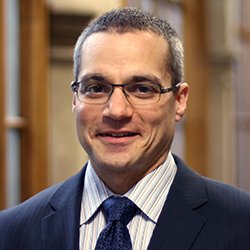 This course is an exploration of the ways in which communication can be more effectively used to exert influence and to exercise power — bringing together a variety of disciplines including rhetorical analysis, leadership theory, composition, speechwriting, and public speaking. The goal is to help students understand how the beliefs and behaviors of decision-makers and publics can be influenced by effective communication.
This course is an exploration of the ways in which communication can be more effectively used to exert influence and to exercise power — bringing together a variety of disciplines including rhetorical analysis, leadership theory, composition, speechwriting, and public speaking. The goal is to help students understand how the beliefs and behaviors of decision-makers and publics can be influenced by effective communication.
 In this course students will explore various facets of the relationship between social media use and organizational communication. Specifically, the course will explore three themes: 1) Ways organizations use social media for communication with external stakeholders, 2) Ways individuals engage with organizations’ use of social media, and 3) Ways that social media may shift traditional conceptions of organizations and organizing. Discussions, case studies, and readings will address the social, technical, and psychological factors related to the use and adoption of social media technologies among various organizational stakeholders. Emphasis will be placed on analyzing contemporary practices regarding how organizations can effectively build communities, develop relationships, and manage reputations. Students will explore opportunities and threats companies may face while adjusting to the challenges posed by social media technologies and the demands of managing social media communications.
In this course students will explore various facets of the relationship between social media use and organizational communication. Specifically, the course will explore three themes: 1) Ways organizations use social media for communication with external stakeholders, 2) Ways individuals engage with organizations’ use of social media, and 3) Ways that social media may shift traditional conceptions of organizations and organizing. Discussions, case studies, and readings will address the social, technical, and psychological factors related to the use and adoption of social media technologies among various organizational stakeholders. Emphasis will be placed on analyzing contemporary practices regarding how organizations can effectively build communities, develop relationships, and manage reputations. Students will explore opportunities and threats companies may face while adjusting to the challenges posed by social media technologies and the demands of managing social media communications.
 Corporations, whether for profit or not for profit, are social actors. There is now general agreement among scholars and business executives that corporations must consider the impact of their activities beyond simply calculating returns to shareholders or customer satisfaction. The general acceptance of stakeholder theory demands that corporations be responsible to a a wide range of stakeholders. It is, therefore, necessary for corporate communicators to assess and disseminate information about any organization’s socially responsible theories and practices. In fact, it is increasingly uncommon to encounter a corporate website or report that does not contain a statement of corporate social responsibility. This course examines the role of strategic communication in coordinating information about social responsibility and ensuring that it is represented in marketing, public relations, internal and legal forms of corporate communication. Students will learn how to develop strategies for authentic development of responsible practices and how these practices can be effectively communicated for both the benefit of the corporation and its stakeholders.
Corporations, whether for profit or not for profit, are social actors. There is now general agreement among scholars and business executives that corporations must consider the impact of their activities beyond simply calculating returns to shareholders or customer satisfaction. The general acceptance of stakeholder theory demands that corporations be responsible to a a wide range of stakeholders. It is, therefore, necessary for corporate communicators to assess and disseminate information about any organization’s socially responsible theories and practices. In fact, it is increasingly uncommon to encounter a corporate website or report that does not contain a statement of corporate social responsibility. This course examines the role of strategic communication in coordinating information about social responsibility and ensuring that it is represented in marketing, public relations, internal and legal forms of corporate communication. Students will learn how to develop strategies for authentic development of responsible practices and how these practices can be effectively communicated for both the benefit of the corporation and its stakeholders.
 Contemporary society is inundated with visual messages. Aside from the pervasive images and icons used in advertising, visual information permeates every aspect of our lives (from politics, fashion and architecture to data, computers and the domestic objects that require our daily use). While visual information in society has become more prominent in the digital age, many of the methods for communicating visually remain the same. Visual Communication uses a set of universal principles to effectively communicate through the design and layout of images and data. Through the study of Design, Cognitive Science, Cartography, Human Machine Interface, Typography and semiotics, this class will study the ways that we perceive visual messages, how we interpret them, how to create them for a variety of purposes, and how to problem solve visually.
Contemporary society is inundated with visual messages. Aside from the pervasive images and icons used in advertising, visual information permeates every aspect of our lives (from politics, fashion and architecture to data, computers and the domestic objects that require our daily use). While visual information in society has become more prominent in the digital age, many of the methods for communicating visually remain the same. Visual Communication uses a set of universal principles to effectively communicate through the design and layout of images and data. Through the study of Design, Cognitive Science, Cartography, Human Machine Interface, Typography and semiotics, this class will study the ways that we perceive visual messages, how we interpret them, how to create them for a variety of purposes, and how to problem solve visually.

“Knowing my ideas and opinions are grounded in theory and research gives me the confidence to voice them more strongly. Post-MSC program, I feel capable of taking on higher level leadership roles, and recruiters are reaching out weekly asking me to interview for these types of positions.”
Kristin Tobias
Director of Social Media at College Board
2022 MS in Communication Alumni
Explore program requirements and application details before applying.
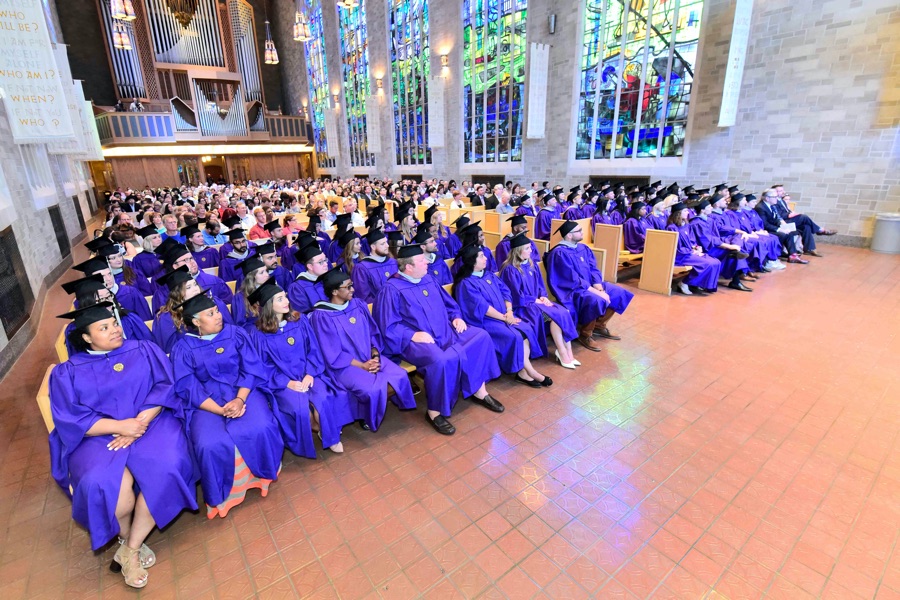
Find out what you need to apply to the MSC program. The MSC does not require a GRE or GMAT score, so it’s easy to apply at your own pace.

Learn more about the MSC program tuition and financial aid.

The MSC accepts applications on a rolling basis, and acceptance decisions are made once an application is received — so begin yours today.

The CLP is structured so that international students can enroll full-time. Find out how the CLP helps you build your career.